Editor's Rating
HOW TO: Find the Right Surf Instructor and Progress your surfing to the Next Level as a intermediate and beginner surfer with Surf Mei Mei
HOW TO:
Find the Right Surf Instructor and Progress your surfing to the Next Level
Do you feel that your surfing skills have plateaued and that your progression has somewhat hit a wall? You’re trying to figure out what you can do to get better but can’t identify the areas that need improvement? Perhaps what you need to advance your surfing skill set and style is an appointment with an experienced surf instructor.
Selecting a surf instructor can be an arduous and frustrating task as you take into consideration the many facets that are needed to ensure you and your instructor are compatible and that you get the most out of your lesson. Surf Mei Mei would like to help you on your decision for selecting the right surf instructor and has provided a starter kit guide for intermediate and beginner surfers.
Having dyslexia, I was at a disadvantage at learning compared to others growing up. However, the disability has trained me to become a more analytical person, especially when I am taking on new obstacles. Similar to many athletes, analyzing and solving the problem is how I usually learn physical activities and become successful at it.

Learning at the beginning needs directions to progress fast. Reading waves might be the hardest thing to do.
Listed below are the 4 most common phases for people to learn a new physical skill related to surfing efficiently:
- Perception Phase: Hear, and physically and mentally visualize the challenge. Also understand it by observing and analyzing photos or videos of yourself or others surfing.
- Identification Phase: Understand your body’s stance and become aware of the flaws in your position and posture.
- Action Phase: Make the proper corrections by practice and repetition.
- Confidence: Believe that you can accomplish anything you put your mind to.
If you are like most of us, you probably don’t have a camera on your board or have somebody filming you while you wipeout. If that is the case, than your best bet of recognizing your errors is having a good surfer watching and giving you feedback. And unless you have a surfer friend, boyfriend, girlfriend, or anyone who has the patience and experience to help you, you’ll need a surf instructor who can lead you to the promise wave.

A surf instructor is someone who teaches wave hungry students basic skills such as paddling, popping up, riding a wave and other surfing fundamentals. She or he is with the student every step of the way and can correct and teach surfing skills faster when both student and teacher are in the water. A surf coach is for surfers who want to progress from basic skills to intermediate and advance levels. The coach instructs the student in the water or on the beach so they can watch their overall performance. Surf coaches can verbally correct a student’s posture since she or he is most likely an already experienced surfer with a solid understanding of water conditions, étiquette, and how to catch and ride a wave. Surf coaches can observe and provide a training plan to significantly improve a surfer’s ability.
Surfing is not just about a person’s wave riding skills though. It is also about interpreting and paying attention to the weather, waves of the moment, condition prior and becoming, tides, swell, other surfers in the water, and other factors. Therefore, a good instructor or coach knows how to observe external (waves, weather, surfboard and other things that do not involve you) and internal factors (your physical surfing skills and condition of the day), understand them, and effectively correct the internal factors for you.
Luckily, I have encountered many surf instructors and coaches from all over the world who are great surfers but not necessarily the best communicators.
Here is a short list to get you started on how to find an instructor fit for you and your surf level:
- Initial Consultation: Talk to your instructor about your surf level and areas where you need improvement on the phone or by email before you finalize your first lesson. You want to ensure that she/he has the aptitude to give you a detailed plan to resolve your areas of improvement. After discussing your surfing ability, you should have a good understanding of how much they know about body position and if they are able to instruct you verbally.
- Surfing Instructor Certificates: Not many countries require a surf instructor certificate to teach how to surf (U.S. does not require any certification). In England and Australia, surf instructors need to get NSSIA certified to teach (National Surf Schools and Instructors Association). Therefore, these certified teachers usually have more detailed knowledge on theories. This does not necessarily mean they are better instructors but it emphasizes the rigorous training they went through to be able to communicate in a more effective way.
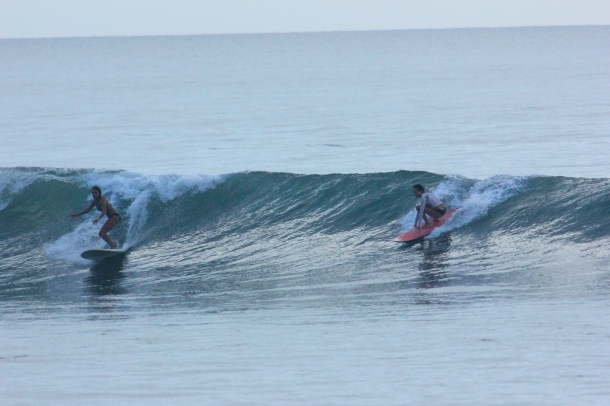
A good surf instructor/Coach will help you to avoid crowded surfers and enjoy a wave or two with your friends
- Group or Individual Lessons: Lessons with fewer people allow a better student and instructor interaction allowing more focus on the student. These classes are more expensive but can pay dividends. A private lesson would be more suitable after a couple of surf sessions and learning the basics first. Private lessons are intended for surfers who have some experience and looking to improve quickly.
- Photos and Videos: If the instructor also takes photos or videos for you, than you‘re in luck! But not so you can post it on Facebook. Reviewing photos and videos is a great way to identify and pinpoint areas where you are making mistakes. Remember, we tend to learn when we see our own mistakes!
- Local Knowledge: An instructor who is familiar with the break and the local surfers you are learning at would be ideal. The instructor’s familiarity with the break will assist you in your lessons and the relationship with the locals will reduce the unwanted attention and judging eyes of other surfers.
- Expectations: Converse with your surf instructor what your expectations are and if they are realistic. You don’t want to go into a surf lesson expecting to come out having the ability to surf Jaws.
- Cost: Shop around and compare surf lesson prices before you enroll in a class. Also read reviews of the school to see how former students’ experiences went. But be aware that a good instructor or coach can be more expensive.
- Trial: Take one lesson to get a good feel of the class and instructor. Since you will have close contact with the instructor for at least an hour, you want to make sure you two get along.
- No Pig Hands: Make sure your surf instructor knows how to properly place her/his hands on you. Teaching how to surf is very physical and is a hands-on lesson. If you don’t feel comfortable with what your instructor says or does, NEXT!
- Sharing: I find many good instructors love to talk, whether she/he likes to chat about waves, weather or anything that’s happening. I think good instructors/coaches like to observe details and they like to share what they have experienced with people. Sharing knowledge plays an imperative role in teaching.
- Workouts and Diet: Some instructors will recommend you do different workouts other than surfing. For example, using an Indo Board, pushups, and doing pull-ups are some of the popular workout regiments. A good instructor/coach might play the role of a nutritionist as well and give you advice for a healthy diet. As we know surfing is a lifestyle.
- Reliability: I often found that some surf instructors may not be very reliable. When there’s good surf, they can be easily distracted. Check out their reviews before scheduling a lesson.
Teaching how to surf is truly a form of art. Not every surfer can be an instructor and it takes a certain personality to be able to observe, understand, and elaborate details for the proper placement you need on different types of wave. The best are the ones who can develop a plan for you to grow as a surfer.
Key things to know:
- Instructors can tell and show you what needs work, but communication and patience is key and will help alleviate some of the frustration that comes with learning a new skill.
- Professional surfers are not always great surf instructors.
- Someone who is serious with their profession and the lessons they give.
- After the lessons, make sure that you feel like you are progressing and not remaining at the same skill level. It is not unheard of for instructors to hold a student back so they keep signing up for lessons. Look at reviews of the instructor or ask for credentials.
- Swimming level requirements for students.
- Safety techniques.
Questions to ask and things to discuss when you first approach a surf instructor:
- Ask the instructor if they have taught students at your surf level and their teaching method for them.
- Discuss with the instructor your surfing problem areas and listen to how she/he explains the possible solutions.
- Ask the instructor how long they have been surfing, surfing at that break and if they surf at different breaks.
- What type of boards do they surf? If you are learning with a longboard, you don’t want someone who only knows how to ride shortboard to teach you.
- Does the instructor have any certifications? I find women like to know more details in order to understand better. Also well-trained instructors will be able to give you more technical advice.
- Will the class be a group or private lesson and what are the differences?
- Does the surf school have insurance for students?
This article is based on Surf Mei Mei’s experience. All suggestions welcomed!
_____________________________________________________________________
We empower and mentor women worldwide through mind-opening experiences.





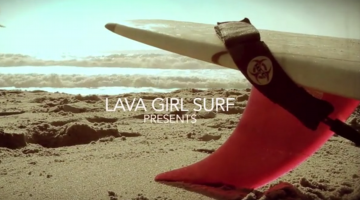





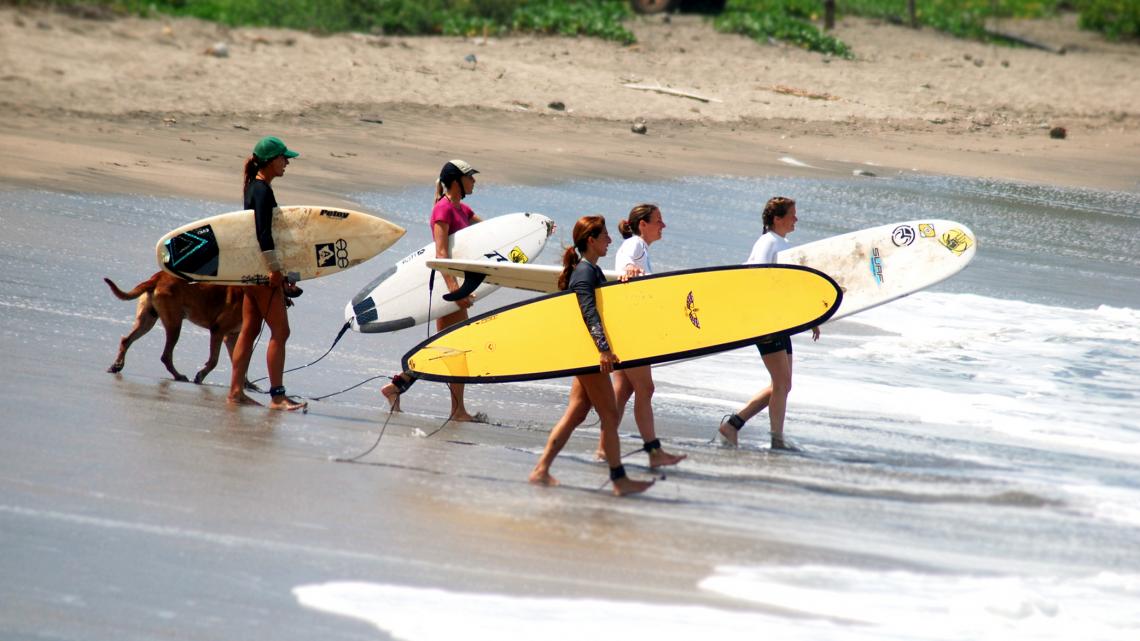


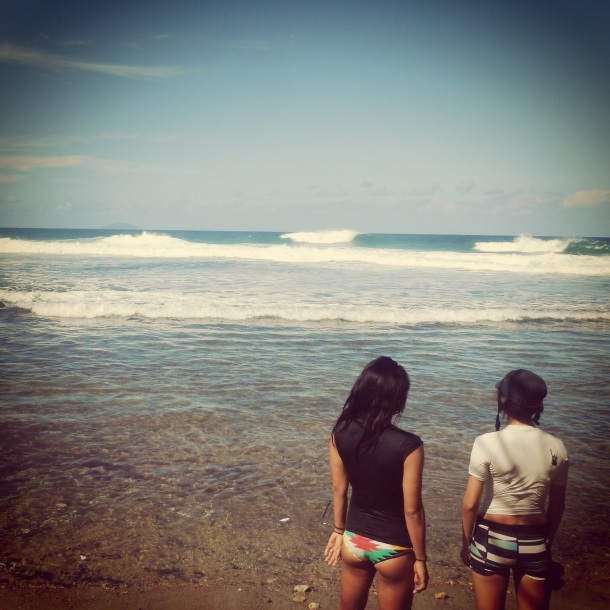

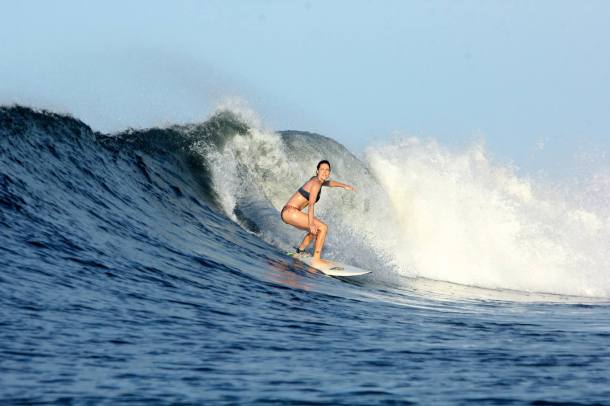

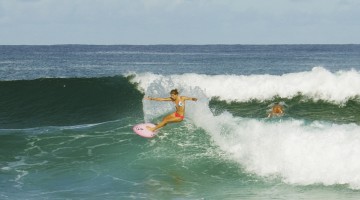

No Comment